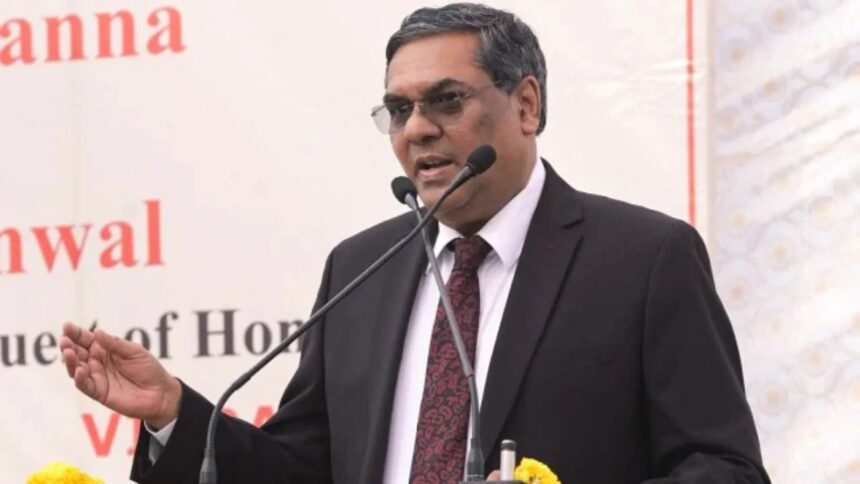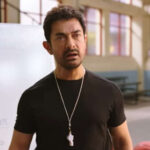Public trust in the judiciary “has to be earned” and “cannot be commanded”, outgoing Chief Justice of India Sanjiv Khanna said while addressing lawyers who gathered in his courtroom to bid him farewell as he retired Tuesday.
At the ceremonial bench sitting, which is customarily held whenever a judge retires, CJI Khanna said he was “completely overwhelmed” by the good wishes and added, “I carry with me a lot of memories. And memories which are very nice, which will remain throughout. Once you are a lawyer, you remain a lawyer.”
The CJI added that public trust in the judiciary has to be earned “through the members of the bar and the bench.”
He said, “Judiciary is a common term which refers to both the judges and the bar. You (bar) are a built-in check apart from the other checks on the system. You are the conscience-keeper.” He said the court has judges from different parts of the country, “and when we discuss things, they are able to point out different aspects.”
CJI Khanna recalled that he and Justice B R Gavai, who will succeed him to the high office, were elevated in the same year. He added that he is “confident that Justice Gavai will be an excellent Chief Justice” and that “he is going to uphold the fundamental rights” and “basic doctrines of law.”
After the ceremonial bench sitting, he also visited the press lounge where, in reply to queries on his further plans, he said, “I will not accept any post-retirement post, but perhaps will do something with law.”
Asked what went through his mind while handling the controversy around Justice Yashwant Varma, was has been embroiled in a controversy amid allegations of cash being found at his residence, CJI Khanna said that unlike lawyers, judges are focused on deciding a matter and leave it to the future to assess it. “We see plus and minus and decide the issue then rationally. When we do that, we take decisions. Then the future tells you whether what you did was correct or not.” The CJI is learnt to have recommended to the President to initiate the process to remove Justice Varma.
Earlier, during the ceremonial bench sitting, Justice Gavai said CJI Khanna “is the perfect example of a gentleman in court.” He added that “his humility and calm demeanour have always stood out.”
Justice Gavai said CJI Khanna’s judgments were centred on the rule of law and personal liberty and reflected clarity of thought and sensitivity to human rights.
Referring to how the late Justice H R Khanna, who was CJI Khanna’s uncle, had dissented in the Jabalpur ADM case, Justice Gavai said CJI Khanna “is holding the same values.”
On the Full Court of the Supreme Court deciding to publish the assets of the judges, Justice Gavai said it reflected CJI Khanna’s “penchant for transparency.”
Justice Sanjay Kumar, who has been sharing the bench with CJI Khanna in Court 1, said the latter had “unending patience” while dealing with even unprepared lawyers. “I would get irritated instead…with sincerity and a sense of purpose, he pursued his duties, be it judicial or administrative tasks.”
Attorney General R Venkataramani said “clarity and sense of doing justice seems to be flowing in” CJI Khanna’s “veins.” He added, “You found that institutional integrity is paramount and your departure cannot be easily filled up.”
Solicitor General Tushar Mehta said CJI Khanna’s judgments were short and crisp and he gave a patient listening to lawyers. The senior law officer said Justice H R Khanna would be proud of him.
President of the Supreme Court Bar Association, Senior Advocate Kapil Sibal, said, “It is the scent of Justice H R Khanna that reverberates in our minds today that you carry.” He added, “There is no branch of the law in which the sense of clarity you had was not there on this side of the bench.” Sibal also applauded CJI Khanna for encouraging young advocates.
Showering praises, Senior Advocate Dushyant Dave said CJI Khanna led the institution like a perfect all-rounder cricketer, “batting with the Constitution in your hand, fielding with the fundamental rights in your hand and bowling with justice in mind”.








